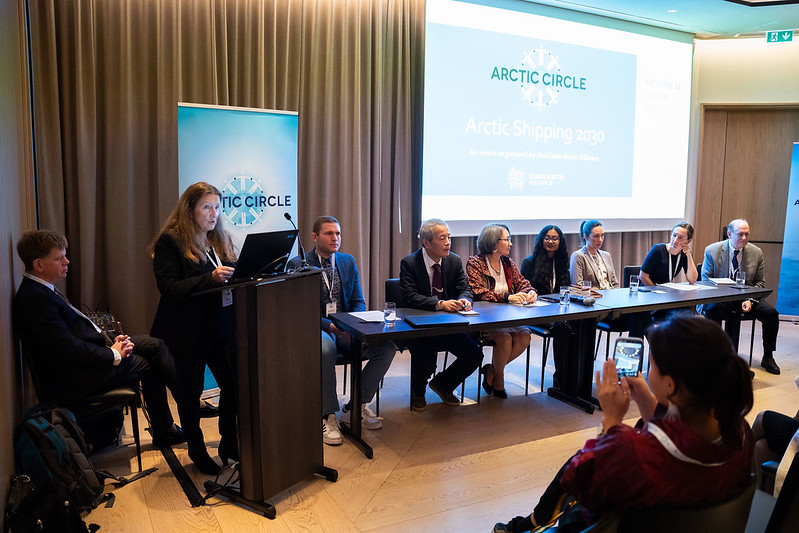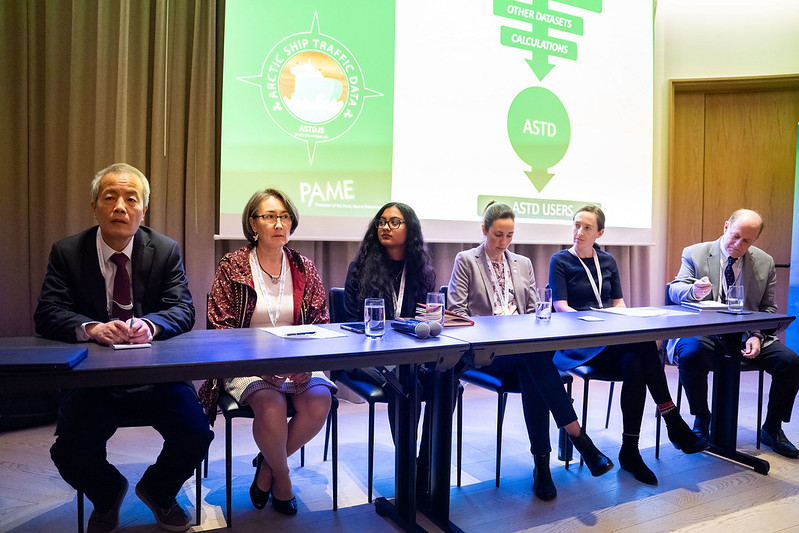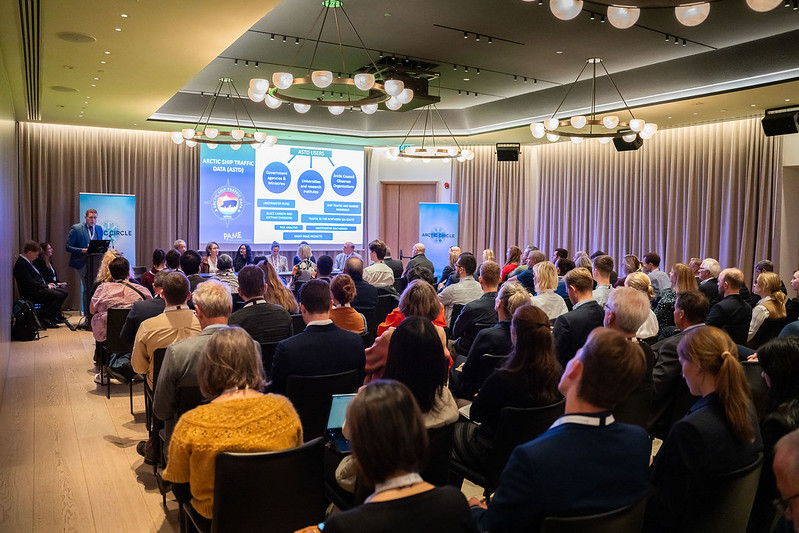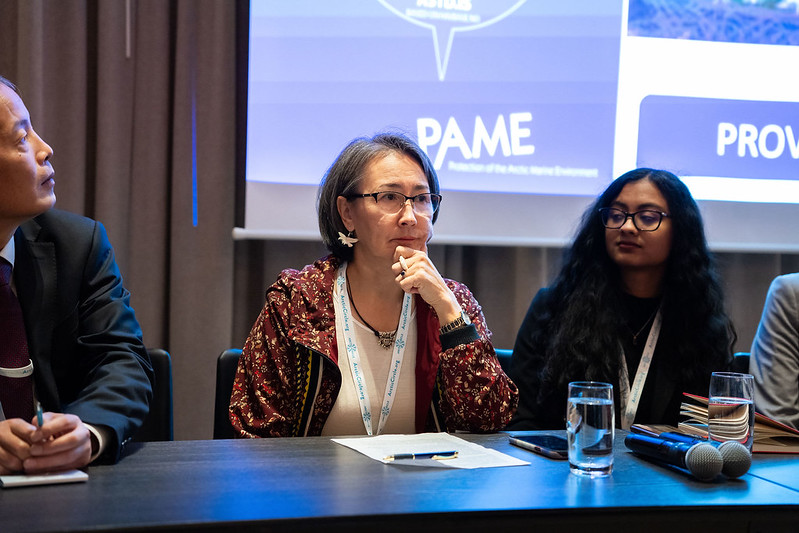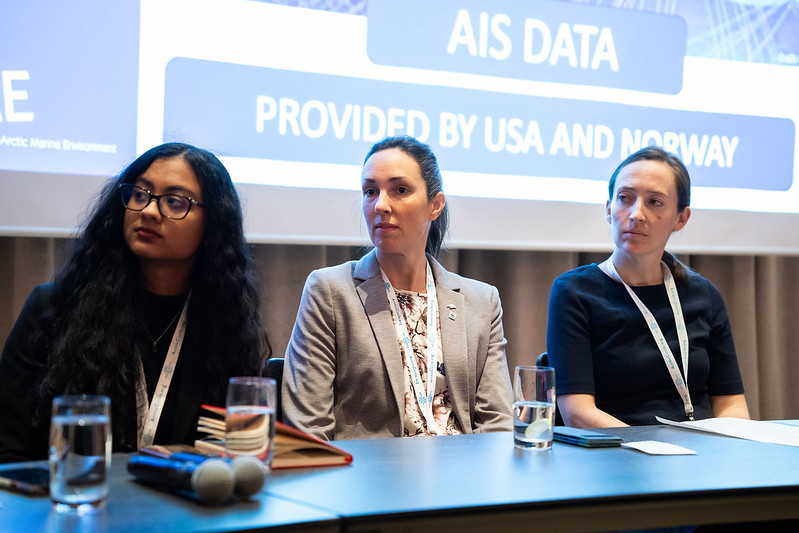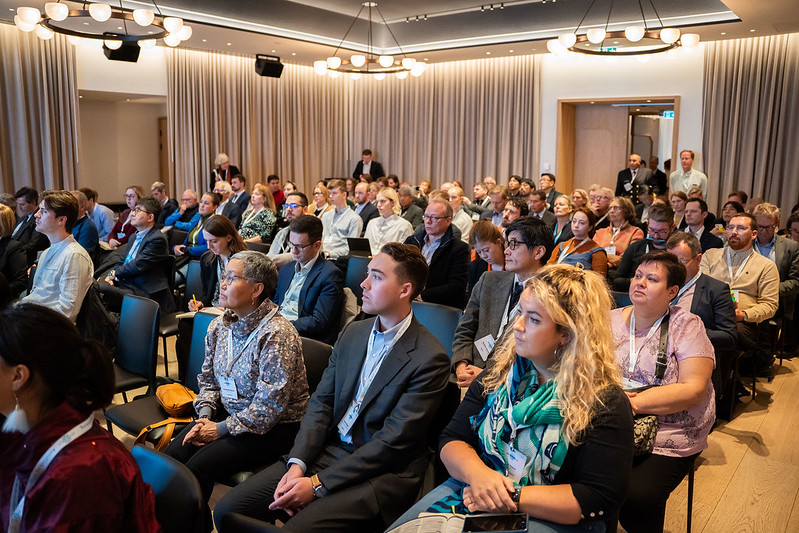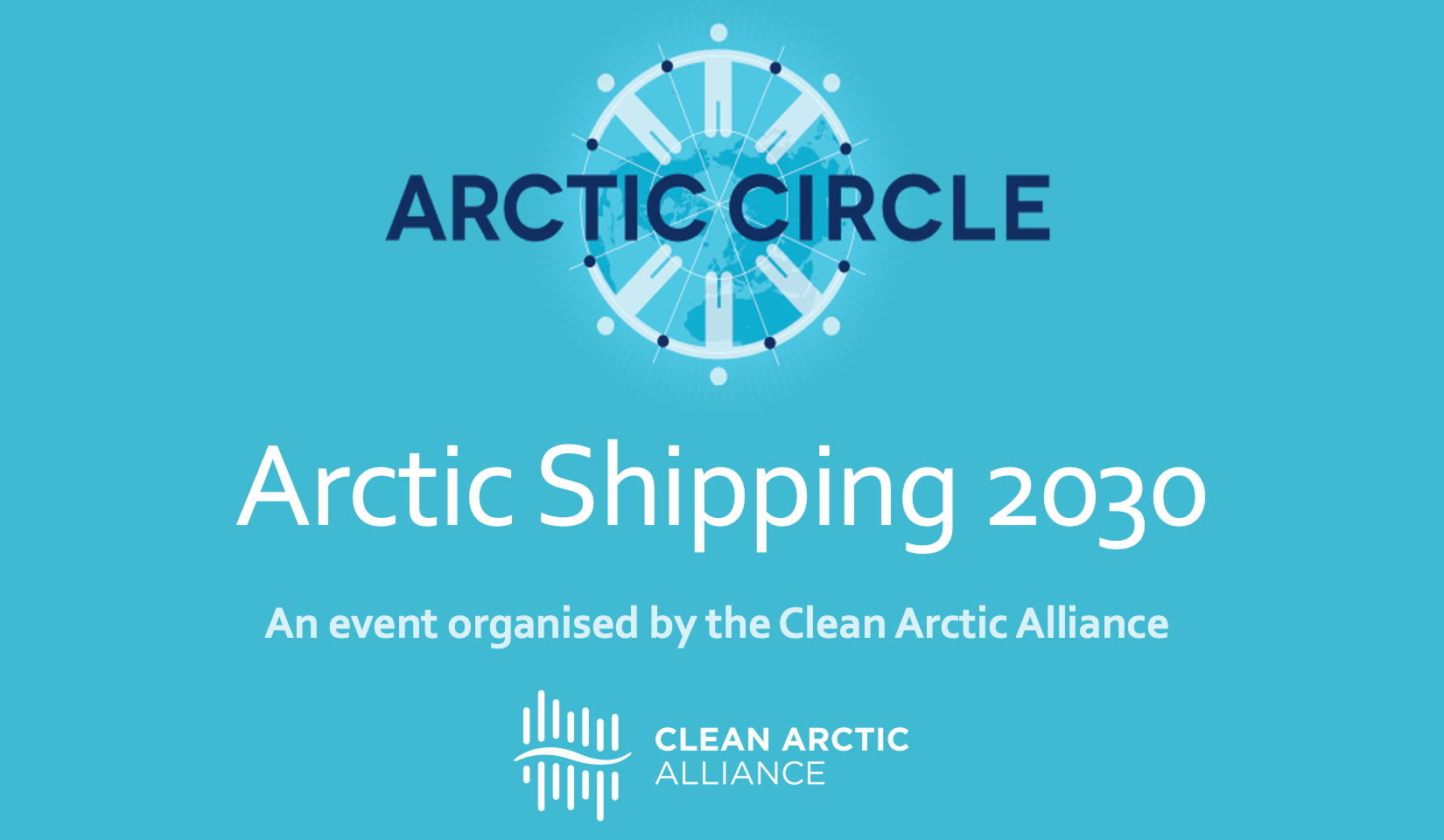
Iceland’s Minister for the Environment and Natural Resources, Guðlaugur Þór Þórðarson provided a brief introduction
The Clean Arctic Alliance’s “Arctic Shipping 2030” event took place during the 10th Arctic Circle Assembly in Iceland on Saturday 21st October, 2023.
As the Arctic faces a climate crisis, access by ships is changing. Between 2013 and 2019, there has been a 25% increase in shipping in the Arctic and a 75% increase in the distance travelled by ships in the Arctic. In parallel, international regulation to reduce the impact of shipping both globally and particularly on the Arctic is under development. 2030 is a crucial point in time by which all sectors, including international shipping, need to be on a decarbonisation pathway. Alongside efforts to address climate forcing impacts from emissions from ships, there is also increased concern about the impact of discharges of scrubber washwater from ships, and the impact of underwater noise on the Arctic environment, Indigenous communities and wildlife. At the Arctic Circle Assembly, the Clean Arctic Alliance’s panel brought together a wide range of Arctic shipping stakeholders to provide their perspectives to a packed room on a vision for shipping in the Arctic in 2030.
Iceland’s Minister for the Environment and Natural Resources, Guðlaugur Þór Þórðarson provided a brief introduction to the Panel and was followed by seven interventions from:
- Hjalti Hreinsson, Protection of the Arctic Marine Environment Working Group (PAME) of the Arctic Council addressing shipping trends in 2013-2022 and projection of what traffic could look like in 2030;
- Tian-Bing Huang, Deputy-Director of Marine Environment Division, International Maritime Organization on international shipping and the International Maritime Organization;
- Lisa Koperqualuk, Vice Chair, Inuit Circumpolar Council on Inuit Perspectives on Arctic shipping;
- Vedika Mandapati, Policy Analyst with Global Choices and an Arctic Angel addressing the need for a Central Arctic Ocean moratorium including shipping;
- Melanie Lancaster, WWF’s Arctic Programme Senior Specialist, focusing on the impact of underwater noise and shipping in the Arctic;
- Sarah Bobbe, Senior Arctic Program Manager with Ocean Conservancy, on wastewater discharge and shipping in the Arctic; and
- Jim Gamble, Arctic Program Director with Pacific Environment addressing GHG emissions and black carbon from shipping impacting the Arctic.
The Panel concluded with a call to sign our Arctic Ocean Action.
